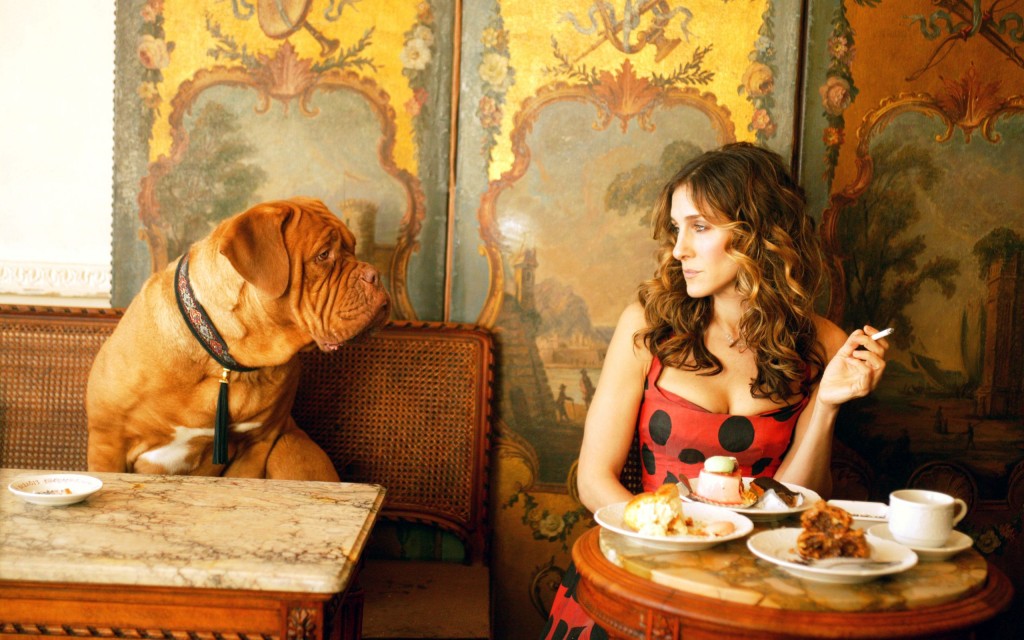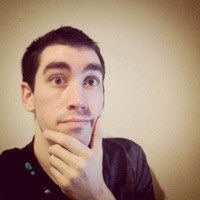“SO. WHAT DO YOU DO?”
It makes me nervous. It sends a shiver down up my back. If you filmed me hearing that question and paused the video at just the right moment, you’d be able to spot when my whole body cringes. I’m a writer, and answering that question on a date is one of the hardest things to do. I guess you could say I’m a glutton for punishment, because why anyone would consistently and willingly subject themselves to this industry, for one thing, and then to the barrage of questions that inevitably follows, is beyond me.
I suppose it should be nice knowing that almost every person I have ever gone on a date with thinks it’s super interesting and “cool!” that I attempt to earn a living from stringing words together into sentences. Yet, whenever the person I’m currently partaking in casual drinks with (in the hopes that they will lead to some sort of sexual entanglement) asks that inevitable question, I can feel myself physically clam up. It’s as common a question as “So, where are you from?” (especially since I wasn’t born in America and have an accent) or gags about my surname (you mean, there’s a basketball joke you think I haven’t heard?!?). It still fills me with dread. Writers are typically either very proud of or very ashamed of themselves. I’m a little of both. So, for the benefit of anybody who finds themselves stuck on a date with a writer, here are six helpful hints to help navigate the conversation that is bound to come up.
I. Don’t ask: “Oh, like books?”
Because, inevitably, we do not write books. Typically, we write sex columns that lay bare the intimate secrets in our bedrooms, or maybe we write film reviews for measly scraps of spare editorial change, or maybe we write the dry descriptions of trench coats that you read on the H&M website. While there are indeed some who get to write award-winning prose on a regular basis, most twentysomething writers that you find on Tinder do not, and it’s a bit soul-crushing when we have to admit it right there before we’ve even had a sip of our happy-hour cocktail.
II. Don’t ask: “What’s your favorite ________?”
Because, inevitably, we’ll spend far too long weighing up the pros and cons of answering this sort of question truthfully. I write predominantly about film and music, so when someone asks what my favorite movie is, I’m always worried that answering genuinely will immediately result in my potential future sex-friend judging me as a snob. Do I tell them my favorite movie is a depressing autobiographical fantasy musical when they’ve just said their favorite is, oh I dunno, Forrest Gump? When you say you’re a critic, people tend to consider you an expert. So do I risk the scorn and damage to my “reputation” by admitting straight-up that I love cheap horror movies and famously “bad” cult classics like Showgirls and Mommie Dearest, or that I’d rather listen to the new Madonna album over Radiohead? The existential crises involved in answering these questions is enough to lead me to a second or third severely-misjudged cocktail.
III. Don’t give career advice.
Because, inevitably, we will just resent how easy you think it is to be a writer. Oh, you think I should try and get a job at the New York Times, do you? You really like to read their culture section on the weekends? Well. That’s nice. I’ll make sure as soon as I get home to get the editor on the phone and say this stranger I met on Tinder suggested I give them a call. No. Just don’t.
IV. Don’t inquire about the future.
Because, inevitably, we barely have any idea of what we’re doing next week, let alone in ten years. If you’re looking for someone with their future mapped out in such a way that they can be described as “stable,” then you should probably just get up and leave. Not even a writer for your hypothetically-beloved New York Times knows where they will be in a year. And you’re asking about ten? We’re being laid off, made redundant, getting pay cuts (if we were ever being paid enough in the first place), or barely scraping by and considering moving back to our home towns. So, please don’t remind us that your ten-year plan involves having a real estate portfolio. I can’t even afford Chinese takeout. Please.
V. Don’t give us praise… but don’t criticize us, either.
Because, inevitably, you will discover our crippling self-doubt, and we really don’t need you to see that right upfront. If you praise something we’ve done, then we’ll just assume you’re buttering us up and just can’t tell how truly terribly our work is. If you criticize us, we will throw you into a pit of fire while screaming, “YOU DON’T KNOW ANYTHIIIIINNGG!” We will then write something about it.
VI. Don’t say you’re jealous.
This goes back to everything else that I’ve said. Assuming that you have a regular income you can depend on, saying that you are envious of our being able to work from home and be our own boss is like a slap in the face. By all means, let’s trade for a week and see how well you fare with following up on invoices for twenty measly bucks, or how you go dealing with an editor who doesn’t seem to grasp what you’re saying. Oh yes, do go on about how you long for the days of not being able to go out on Saturday nights because you need to file a deadline that actually cannot wait. Could you possibly give up all the free Snapple and deli lunches? Oh, you’d love to go on holidays whenever you like? Just try when you can’t even afford the taxi to the airport.
In conclusion: just don’t.
I don’t want to diminish the dating pool any more than it already has been, but you’d probably be smart to just avoid writers at all costs. We’re a breed best left alone. Like actors in New York or surfing enthusiasts in California.

















